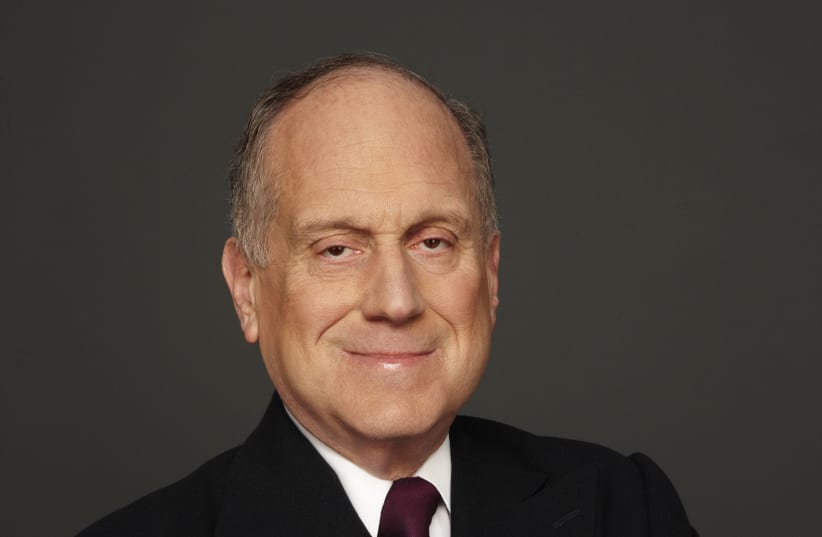With antisemitism on the rise globally, the World Jewish Congress (WJC) concluded its quadrennial gathering addressing key issues affecting Jewish communities and setting policy for the years ahead. During Tuesday’s final convening of the WJC’s 16th Plenary Assembly, which has been meeting online since mid-April, the WJC formally announced the election of its leadership, including the reelection of Amb. Ronald S. Lauder as President, to guide the global organization representing 103 Jewish communities around the world.
In keynote remarks, Lauder raised the alarm of the frightening rise of antisemitic hatred seen globally during the COVID-19 pandemic. His concerns were echoed by fellow global leaders who participated, including President of the State of Israel Reuven Rivlin, President of the European Commission Ursula von der Leyen, Organization of American States Secretary-General Luis Almagro and UNESCO Director-General Audrey Azoulay. All congratulated Lauder and the WJC for its leadership on combating antisemitism and intolerance, advancing human rights globally, preserving Holocaust memory, increasing Holocaust education, and developing the next generation of Jewish community leaders. Each emphasized their support of the WJC and global Jewry.
Expressing sharp criticism of members of the US Congress and other international parliamentarians who have failed to defend Jews against antisemitic attacks or stand up for Israel during the recent conflict between Israel and Hamas, Lauder called on elected officials to fulfill their responsibility to protect the Jewish people and prevent and respond to antisemitism. He said, “Any government leader that does not stand up with a strong voice against antisemitism will know that the World Jewish Congress will be there. … But we must do this as one, united people.”
He applauded world leaders who have supported Israel. “We must hold all politicians accountable who either supported Hamas or stood silent. At the same time, I want to thank President Biden and his administration and all world leaders who understood the difference between a sovereign, democratic country and a terrorist group aimed at killing Jews. We are grateful for their honesty and their support.”
Lauder promised the hundreds of delegates participating in the Plenary in representation of their Jewish communities and organizations that as leader of the WJC, he would take a multi-pronged approach to address current challenges the global Jewish community is confronting and to drive Jewish unity across Israel and the Diaspora:
Education -- promoting the establishment of new Jewish schools within the United States and internationally in order to cultivate an understanding of what it means to be Jewish early in life, raising money to support scholarships for families in order to ensure that all Jewish children can access Jewish education, and to support synagogues in expanding educational offerings.
Pluralism and shared Jewish peoplehood -- encouraging Jews of all backgrounds to accept and support each other; “Orthodox Jews must accept the Jews who don’t wear yarmulkas,” he said. “In Israel, Reform and Conservative Jews should be accepted and have the same status as the ultra-Orthodox.” He called for the establishment of prayer spaces for all at the Western Wall in Jerusalem, and recognition of non-Orthodox conversions: “If someone wants to be Jewish, we should not turn our back on them,” he said. “We are one people, from the most secular to the most Orthodox. None of us is more Jewish than the other, and we need to hold on to every single Jewish person there is. We desperately need new young Jewish leaders. But we can’t expect this to just happen. We have to make it happen.”
Support for Israel -- “After all the death and loss and suffering that Jews went through to win back our homeland, we cannot allow it to be lost again. We must stand up and fight for it. We must be loud and relentless.”
Development and enforcement of stronger, stricter hate crimes legislation
The WJC’s leadership was elected by WJC delegates representing member Jewish communities and organizations, who voted via an anonymous online election process.
